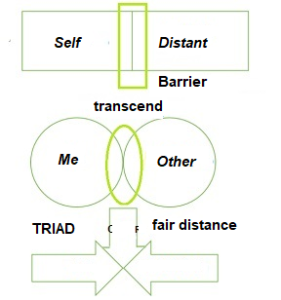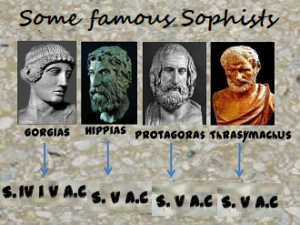
Arquivo para a ‘Politics’ Categoria
Justice, ideia and thinking
The three words are important at a time of great crisis in thought (what is), what is an idea, and the idea of justice or the just, explored by current thinkers such as Jurgen Habermas (we mentioned in a previous post on the issue of including Outro) and we quote in passing the two volumes of Paul Ricoeur o Justo (volume two published by Martins Fontes in Brazil) although the author himself says that it is an essay, he penetrates a deeper aspect, the question of truth and morals.
great crisis in thought (what is), what is an idea, and the idea of justice or the just, explored by current thinkers such as Jurgen Habermas (we mentioned in a previous post on the issue of including Outro) and we quote in passing the two volumes of Paul Ricoeur o Justo (volume two published by Martins Fontes in Brazil) although the author himself says that it is an essay, he penetrates a deeper aspect, the question of truth and morals.
Reading the text, Inclusion of the Other by Habermas, clarifies that in philosophical terms, that morality in John Rawls, in Kantian terms, has differences between Kant’s original political liberalism and Kantian republicanism, which is how Rawls defends it, this would be enough, but there is a long analysis in Volume 1 by Paul Ricouer on justice in Rawls.
To understand Ricoeur’s book 2 it is necessary to understand that for the Greeks the first philosophy is that which for them, and the ontological resumption has to do with this, metaphysics as questions about Being, existence, the cause and the meaning of reality and physis (nature) must be placed prior to the second, aspects linked to logic and ethics.
Book 2 addresses what seems most essential in Ricoeur, although he confesses that it is an essay, its goal is “to justify the thesis that theoretical philosophy and practical philosophy are of equal levels; as none of it is first philosophy in relation to what Stanislas Breton characterized as the meta- function (I myself defended this reformulation of metaphysics in terms of the meta- function, in which “the maximum genres” of the dialectic of Plato’s last dialogues would be united and Aristotelian speculation on the plurality of the meaning of being or beings) “ (Ricoeur, 2008, p. 63) … but he did not speak (initially it was written in a conference) about this but rather about the two second philosophy.
His analysis is based “initially, thinking about justice and truth without each other; in a second moment, think about them in a way of reciprocal or crossed presupposition” (Ricoeur, 2008, p. 64) and this undertaking “has nothing revolutionary, it is located in the line of speculations about transcendentals…” (idem).
When approaching the first stage of the analysis: “I thought of Rawls’ statement at the beginning of Théorie de la justice: “Justice is the first virtue of social institutions, just as truth is the first virtue of theories” (pg. 65) and There the author takes up the ethical part of another text of his: Soi-même comme um autre, to “guarantee the eminent status of justice”.
The idea developed there is that this triad leads to “equity”, it is not the dualism between the Self and the Other (the next one also uses Ricoeur), “the triad belongs to the horizontal axis and does not consist absolutely in the simple juxtaposition between the self, the near and far; it is the same dialectic of the self. The desire to live well roots the moral project of life, in desire and lack, as marked by the grammatical structure of the desire… but without the mediation of the other two terms of the triad, the desire for a good life would be lost in the nebula of the variable figures of happiness… I would say that the short circuit between wanting a good life and happiness is the result of ignorance of the dialectical constitution of the self” (pg. 66).
The author formulates the idea of distance in these terms: “fair distance, a middle ground between the very little distance typical of many dreams of emotional fusion and the excess of distance fueled by arrogance, contempt, hatred of the strange, unknown. I would see in the virtue of hospitality the closest emblematic impression of this culture of just distance” (pg. 66).
Justice on the vertical axis, that of power and norm, is seen by the author as follows: “on the vertical axis that leads to the pre-eminence of practical wisdom and, with it, justice as equity, a first observation can be made regarding the relationship between kindness and justice. The relationship is neither one of identity nor difference; goodness characterizes the goal of the deepest desire and, thus, belongs to the grammar of wanting.
I consider the triad to be the self, the other and the distant, if also seen as a transcendent alterity, there is another “unknown” that can be divine and a carrier of messages, in network theory for example the “weak link” is considered fundamental , Ricoeur’s essay is rich, however, when returning to the question of the Kantian categorical imperative, which justifies political idealism, I believe that Habermas is correct in stating that this is the mistake in John Rawls’ consistent and very current “A Theory of Justice”. influential.
A part of the biblical reading can expand the concept of this distant as transcendent otherness (Mt 5,20): “Unless your righteousness is greater than the righteousness of the teachers of the Law and the Pharisees, you will not enter the Kingdom of Heaven”, which in the deontological sense one could say “you will not enter into the truth of justice”.
A part of the biblical reading can expand the concept of this distant as transcendent otherness (Mt 5,20): “Unless your righteousness is greater than the righteousness of the teachers of the Law and the Pharisees, you will not enter the Kingdom of Heaven”, which in the deontological sense one could say “you will not enter into the truth of justice”.
Ricoeur, P. (2008) Justo 2: justice and truth and other studies (in portuguese). Trans. Ivone C. Benedetti. Brazil, São Paulo: Martins Fontes, 2008.
The poor and demagoguery
The easy speech, especially in times of politics, is to appeal to the poor, the forgotten, the discriminated against, etc. for a while the populists even offered something to the population, income distribution policies and cheap credit, but the problem is that they don’t forget to supply allies and their own pockets, in addition to the public accounts that explode.
is to appeal to the poor, the forgotten, the discriminated against, etc. for a while the populists even offered something to the population, income distribution policies and cheap credit, but the problem is that they don’t forget to supply allies and their own pockets, in addition to the public accounts that explode.
This happened in several countries in Latin America and the result is that the bill arrives and then we see the ghosts of authoritarianism and popular revolt come out, now they realize that this can also happen in African countries, the African National Congress ( ANC), Nelson Mandela’s party that freed South Africa from apartheid, lost the mayoral elections in Nelson Mandela Bay and also in the capital Pretoria.
South African President Jacob Zuma is involved in corruption processes and poverty and the economy do not work well there, so the population loses illusions about future promises.
Populism deceives with speeches, but in many parts of the planet, little by little, greater dissemination of facts is making concrete actions, honest stances and even more clear policies to lift the population out of poverty more necessary, Argentina was an example of this.
In many countries the homeless and unemployed population is increasing, even in Europe this is one of the sources of xenophobia, as people from poor countries do not refuse heavy work and lower wages, one gets the impression that they are “taking” the jobs of workers. locals, the demagogic analysis of something getting better is falling apart.
The threat of war can make this even more serious, because “tough” governments can be thought of as “necessary” at this moment, in short, a turning point is needed, and there is no way to do this without clear, sustainable and less populist policies to change the situation. scenario.
It is necessary to eliminate poverty in a radical and borderless way, welfare and immediate public policies are not enough, it is necessary to have a clear horizon where the dignity of every person is guaranteed, in addition to immediate relief from hunger, wars and endemic diseases.
The election of city halls and regional states, of course, has a more provincial bias, but it must not fail to consider a changing global scenario and a broader mentality, the world has been a global village for some time now.
Warning to politicians of all stripes, demagoguery’s days are numbered, change must be made.
An un-avoidable war
The escalation of the war continues without a light at the end of the tunnel, despite efforts to ensure that the two most dangerous wars do not exceed limits that make 3G inevitable, on the Iran and Israel side of the conflict there were unsuccessful conferences in Doha, on the Ukraine side x Russia, India’s Prime Minister Narendra Modi visited Zelensky in Kiev.
light at the end of the tunnel, despite efforts to ensure that the two most dangerous wars do not exceed limits that make 3G inevitable, on the Iran and Israel side of the conflict there were unsuccessful conferences in Doha, on the Ukraine side x Russia, India’s Prime Minister Narendra Modi visited Zelensky in Kiev.
Symbolically, both events are important for Peace, Mahatma Gandhi’s India has a pacifist tradition, Narendra Modi 14th. Prime Minister of India, he is the first to have been born after independence from England, achieved in a peaceful war on the Indian side, as England acted with repression and violence.
The conference in Doha also has its significance, in addition to several conferences from Western countries, it also hosted the 5th. conference for Least Developed Countries (LDCs) that seeks to respond to the challenges of achieving the Sustainable Development Goals through a program of Action (Doha Program of Action – DpoA).
The military incursion into Russia continued in a significant area of 1,200 km and there were also drone attacks, the objective is to reach military posts and oil reservoirs on Russian soil, but Russia is advancing on eastern Ukraine in areas close to Kharkiv and Belarus also concentrates troops in other side, Ukraine acuse.
The escalation of both wars, there is a video showing tunnels inside Lebanon of the pro-Iran Hezbollah group. With enormous mobility where motorcycles and trucks pass, where a large part of the weapons for attacks would be located, which in the early hours of yesterday (Sunday 25/08) would have already started, Israel is on high alert and is removing residents from the border.
Lithuania announced that it already has collaboration areas with the German army for exercises in case the war with Russia escalates, the initial forecast is to place 5 thousand soldiers in areas already reserved for the German army.
Biden announced new military aid to Ukraine, the conversation between US Secretary of Defense Lloyd Austin with his Ukrainian counterpart Rustem Umerov on Friday (23/08) talks about a package worth US$ 125 million, in reais around R $685 million.
India’s involvement and the countries that meet in Doha (among them the United States and Egypt) is possíble, but is necessary first desarm the spirits.
War and the illusion of power
Whatever form we define with power, and this does not exclude the empowerment of the weak, it is always a form of domination of one being over another, there would then be some form of balance, or in the words of philosophy, some form of symmetry or horizontality ?
does not exclude the empowerment of the weak, it is always a form of domination of one being over another, there would then be some form of balance, or in the words of philosophy, some form of symmetry or horizontality ?
Byung-Chul Han’s answer in the book In the Swarm seems direct and simple: respect, all other forms, presuppose some hierarchy or asymmetry of power.
It is sad to note that many contemporary philosophies and spiritualities also point to forms of power: be more, be first, how to achieve things ahead of others and thousands of “magical” ways to deceive and deceive innocent people who embark on these false promises.
We are finite and limited beings, balance and social life depend on everyone, and hatred and wars are the cruelest manifestation of forms of imbalance and asymmetry.
Egalitarianism is also an illusion, we are different and with different skills and this does not harm us, human complementarity helps us to carry out different tasks and in different contexts, some with more talent and others with more difficulties, but there is no need to discard anyone, social life is made up of a set of individual actions.
However, the set of values and stimuli that we have internally depend on a human and spiritual asceticism, not an idealistic altruism, but a good sense of respect and dignity of which we are all bearers.
Modern society, since the Enlightenment and idealism, has decided that these “subjective” factors (in fact, human interiority, real and imaginary) should be discarded, and the result is a violent society, without balance and which depends on brute force to balance, in this the State and the police force end up playing a preponderant role.
It is a shame to opt for non-violence, respect for others and moral values, all of this seems harsh and seems to restrict freedom, but it is a guarantee of balance and serenity.
In the Bible, the disciples said to the master Jesus: “your words are harsh” (John 6:60) and He replied: “this causes you to stumble”, “the Spirit is what gives life, the flesh is of no use” and some decided not to walk more with Him, what we put in our minds is what guides our life.
Clearing and being-in-the-world
A superficial reading of ontology is one that imagines being as pure contemplation or what is worse as an insurmountable human condition. Hannah Arendt’s reading of the Human Condition says something else: it concerns the conditions that man imposes on himself to survive, that which can supply man’s existence and which is not only linked to his materiality.
imagines being as pure contemplation or what is worse as an insurmountable human condition. Hannah Arendt’s reading of the Human Condition says something else: it concerns the conditions that man imposes on himself to survive, that which can supply man’s existence and which is not only linked to his materiality.
His tutor and from whom he was greatly influenced, Martin Heidegger states that being-in-the-world is a being in a certain temporal situation (hence Being and Time), but that it must always be open to becoming something new, giving life is an existential characteristic, but as a second trait, not as an essence as in materialist or nihilist ontology.
By systematizing the human condition into three aspects: labor, work and action, Arendt separates each one in a particular way: labor is linked to the biological process of human life, work is the activity of transforming natural things into artificial ones, for example, we remove the wood of the tree to build beds, cabinets, tables, etc. and finally action synthesizes our social activities and they ultimately reflect how we conceive this life.
Thus Hannah Arendt will divide human life into Vita Contemplativa and Vida Activa, a theme also explored and synthesized from the point of view of philosophical ideas by Byung-Chul Han.
So much labor, work and action are fused in what becomes our Active Life, we dealt in the previous post with the criteria of efficiency and productivity that this life reached in Modernity and its questioning, however the contemplative life is complementary to this, only in the reasoning of antiquity classicism and that modernity has explored, is that we dismiss the contemplative life as something unnecessary or even fanciful.
In Socrates’ reasoning, if man is only for eating, sleeping, having sex, then he is not a man, but an animal, from which Aristotle’s shallow reasoning comes: man is a political or social animal, that is not what characterizes Aristotle’s Zoe, is the fact that he is just an animal.
Heidegger’s clearing, therefore, is not just the possibility of man finding his Being, what he is in the world from an existential point of view, it is also finding the clearing and in it the new being, which lives in the light and not in the darkness, it is the Plato’s cave now under the gaze of a dark cloud that shakes humanity in modernity.
Thus, glory, light and truth only shine within contemplation, not only that of great mystics and sages, but of those who humbly open themselves to the new, to the light.
The logic of productivism and its inverse
Several authors argue about the logic of modern society regarding productivism, this logic is not specific to a mode of production, but characterizes a society where values are all placed around the power and productivity of each individual, thus excluding, for example , the elderly, children, domestic workers and those with special needs.
modern society regarding productivism, this logic is not specific to a mode of production, but characterizes a society where values are all placed around the power and productivity of each individual, thus excluding, for example , the elderly, children, domestic workers and those with special needs.
According to the literature (A. Giddens and others): productivism is the logic that guides the lives of a group of individuals (the so-called “adequate consumers”) while another group (called “failed consumers”) are adrift in economic life , political and social.
For this reason, more critical social analysts place the allocation of work to directed groups as a factor of crisis in contemporary society, also in the academic, political and even spiritual world, a certain profile of a person with some “performance” is required.
Saying that these people take actions according to their abilities or choices is a farce, even if we find some rebellion among young people who opt for jobs such as cooking, sports or leisure sectors, the majority live on projects manipulated by the society of performance and consumption. .
How to reverse this logic, looking at the excluded sectors of society, it is increasingly common for people with special needs, people with certain types of diseases or syndromes to fit into a restricted market full of productivity demands.
The biblical parable of last-minute workers is a well-placed metaphor, where workers who are sitting in the square (discarded from productive spaces) are called to work and although they arrive at the final hour they will receive the same amount as other workers, not to be confused with Misguided projects (in Brazil) that place young people in work without having the remuneration corresponding to the same function performed by “experienced” workers.
The parable, also called “workers in the vineyard” or “generous employer” (Mt 20:1-16), could be the opposite of the productivist vision of the modern labor market.
Giddens, A. (2013) Consequencies of Modernity. Cambridge, UK: Polity Press.
The Sophists’ Justification of Power
The sophists were intelligent men who educated and influenced young people in Classical Antiquity, using oratory and rhetoric, to use speech to justify power, regardless of moral aspects.
and influenced young people in Classical Antiquity, using oratory and rhetoric, to use speech to justify power, regardless of moral aspects.
They were fought first by Socrates, we only know about him through Plato, and then by Plato (428 BC – 347 BC) and Aristotle (384 BC – 322 BC) who defended education for true citizenship, considering the sophists merely mercenaries of the powerful.
As we read in Plato, Protagoras was one of these sophists, he was born in 490 BC and thus can be considered the first sophist, another famous one was Hippias who would have debated with Socrates about natural and conventional laws, he was versed in astronomy, mathematics, painting and poetry which gave him great “authority”.
They have their origins in the pre-Socratics: Protagoras would be a disciple of Democritus (the famous phrase “man is the measure of all things”), Thrasymachus, the main figure in the beginning of Plato’s Republic, argued that “justice would be only the advantage of stronger”, and Gorgias, who is not considered a sophist by Socrates, creates a controversy with Parmenides (being is and non-being is not), according to this “sophist” one cannot communicate what is not known.
Two criticisms can be considered fundamental to the sophists, creating relative truths and this has a strong relationship with modern narratives, and the fact that they considered that virtues were not things that could be taught, thus dismissing moral values.
They, however, did not ignore the questions of the “soul” (what idealism calls subjectivity) in Gorgias’ speech we can read:
“[T]here is the same relationship between the power of speech and the disposition of the soul, the device of drugs and the nature of bodies: just as such a drug causes such a mood to leave the body, and that some cause illness to cease, others life, so Also, among the speeches, some afflict, others enchant, make fear, inflame the listeners, and some, due to some bad persuasion, drug the soul and bewitch it.”
Modern sophists go beyond disregarding the soul, as they praise drugs, drunkenness and temporal pleasures, education for citizenship and replaced by pure ideologisms, today little thought out and organized, are vague promises of a better future.
Thus the logic of power is inverted, Thrasymachus’s “strongest” speech makes sense again, the lack of reasonable moral values has been extinguished in exchange for momentary and fleeting happiness, and rhetoric and oratory are used to convince of many, but true moral discourse says: “the last will be first and the first will be last” (Mt 19:30) because this logic only leads to destruction and empty promises.
Plato. A república (The republic). Trans. And notes Maria da Rocha Pereira, 9th. ed. Colouste Gulbenkian Foundation, Lisbon, s/d.
The limits of total war
With hope and with great fear of a total war, which would culminate in a great civilizational crisis, we post weekly analysis of the evolution of situations in which the limits of a total war can be broken and lead to an inevitable confrontation.
which would culminate in a great civilizational crisis, we post weekly analysis of the evolution of situations in which the limits of a total war can be broken and lead to an inevitable confrontation.
Now countries in Europe and the United States are trying to understand these limits, recognizing that Israel exceeded this limit by assassinating the leader of Hamas in the middle of Iranian territory, the idea of putting an end to the tension created runs the risk of not being heard by Iran and a war Direct agreement between Israel and Iran would involve the world’s great war powers.
The situation in Ukraine is similar, although in the opposite direction, the country was severely attacked and punished in these two years of war on the way to the destruction of its energy sources, now it has organized a bold retaliation by invading a Russian border zone and establishing itself in an area of around a thousand kilometers, in the Kursk region of Russia (photo region of bridge destroyed).
Yesterday, Sunday 18/08, Volodimir Zelenski spoke for the first time that the objective is to create a “buffer zone” to prevent attacks in the region of the country’s second largest city, Kharkiv, however this advance infuriated the Soviet leaders, who accuse the West to prepare and help Ukraine in the invasion, this limit was also exceeded there.
The sending of a submarine capable of firing missiles to the Middle East, according to White House spokesman John Kirby, who stated that the situation in the region was discussed with France, Germany, Italy and the United Kingdom.
On the other hand, an influential Russian deputy, Mikhail Sheremet, said on Friday that the presence of a military arsenal on Russian soil is “irrefutable evidence of foreign participation” in Ukrainian military action.
All of this is a pre-World War scenario, there is no longer a limit between Western involvement and these two outbreaks of war, there is always hope, the men who provoke wars can regain their serenity and understand that these limits should not be exceeded and go to a negotiation table, but tension escalated to maximum level.
Temporal power and forgiveness
Temporal power rarely finds space for forgiveness, but this does not mean that it never passes through human thought and philosophy, even though in essence, forgiving is divine, and this means going beyond what is humanly thinkable.
but this does not mean that it never passes through human thought and philosophy, even though in essence, forgiving is divine, and this means going beyond what is humanly thinkable.
For the philosopher Jacques Derrida: “when forgiveness is in the service of a purpose, be it noble or spiritual, such as redemption or reconciliation, that is, every time it intends to reestablish normality, social, national, political or psychological, through mourning work or therapy, it is not pure […] Forgiveness should remain exceptional and extraordinary, putting the impossible to the test, as if it interrupted the ordinary course of human temporality”, thus it remained within human limits.
There is no doubt that crimes against humanity, atrocities and barbarities are beyond the limit of “human temporality” and so is earthly power, since it is temporal, even dictators who remained in power all their lives had a tragic or disastrous end. temporal death, and some were forgotten, others even banished from popular memory.
Therefore, forgiveness must be considered as something fundamental in addition to temporal power, and it could be a regulator for periods of crises and wars, in almost all of which it is not possible to measure the degree of atrocities committed, both on the part of the “winners” and “losers” and the rational (and divine) thing would be to consider that they got themselves into a fight that they should never have entered into.
Likewise, our personal and social sorrows and disagreements, how useful and healthy a moment of serenity would be and to sit at the table of dialogue and be able to discuss unthinkable solutions, or in Derrida’s words “putting the impossible to the test”, the moment looks like this.
If we have the courage to listen to that “enemy” that we would never listen to, to give a hand to someone whose hurt or disagreement is very great, we could return to a destructive path that seems to have no return, and whose overcoming depends only on one attitude: forgiving.
Even those who will never ask us for forgiveness have lost the serenity and humanity of seeing the other beyond judgments and disagreements, there is always another being there, ontologically we only deny the Being if we refuse to listen to it and give it some credit, maybe you need this.
Forgiving is divine, whoever takes this step understands that there is another reality beyond what we imagine to be real and possible, the impossible is also within the reach of those who forgive.
Unity or dualism
Dualism is an essential part of modern thought, even if little or nothing is known about philosophy, and it has penetrated deeply into the human soul and created things through contrasts, not the one that came from Plato, the shadows of the cave where we cannot see clearly and not the clearing place of Heidegger’s search to find the forgotten being in philosophy.
even if little or nothing is known about philosophy, and it has penetrated deeply into the human soul and created things through contrasts, not the one that came from Plato, the shadows of the cave where we cannot see clearly and not the clearing place of Heidegger’s search to find the forgotten being in philosophy.
Byung-Chul Han, when describing modern narratives, is incisive: “the new barbarian celebrates the poverty of experience: one should not imagine that men aspire to new experiences. No, they aspire to free themselves from all experience, they aspire to a world in which they can display their external and internal poverty so purely and so clearly that something decent can result from it” (Han, 2023, p. 35) quoting Walter Benjamin .
He will then say that they “profess transparency and a lack of mystery, that is, they profess a lack of aura. They also reject traditional humanism” (pgs. 35-36), clarifies, however, that the aforementioned book by Walter Benjamin “is full of ambivalence” and in the end, after a “certain” apology, modernity (the quotation marks are mine) gives way disillusionment and foreshadows the Second World War.
We could have freed ourselves from this “disease of modernity” (as Freud wrote) but Benjamin’s skepticism makes sense again, quoted in Han: “We became poor. We abandoned all the pieces of human heritage one after another, we had to pawn them many times for a hundredth of their value to receive in exchange the small coin of “current”…” (pgs. 37-38).
We talk about peace while we fight wars, we talk about unity and we are deeply divided, we talk about democracy and we come out in support of autocratic attitude and government, and perhaps the greatest of all sophistry, we intend to eliminate poverty and misery by filling our pockets, there is no coherence between discourse and attitude, it is about creating good narratives, and this started from the division between what is specific to the subject (not subjectivity but his soul) and the object (not objectivity, but the material use of what he produces life).
There is a lack of an “aura”, complains Byung-Chul Han, perhaps a spiritual one, the resistance of Edgar Morin’s spirit makes sense, but it is necessary to find a true meaning for this, what most men call religion is nothing other than justifying personal narratives.
It is possible to rediscover unity, dialogue and peace, but it is necessary to “disarm” the spirits.
Han, B.C. (2023). A crise da narração. Brazil, Petrópolis: Ed. Vozes.

